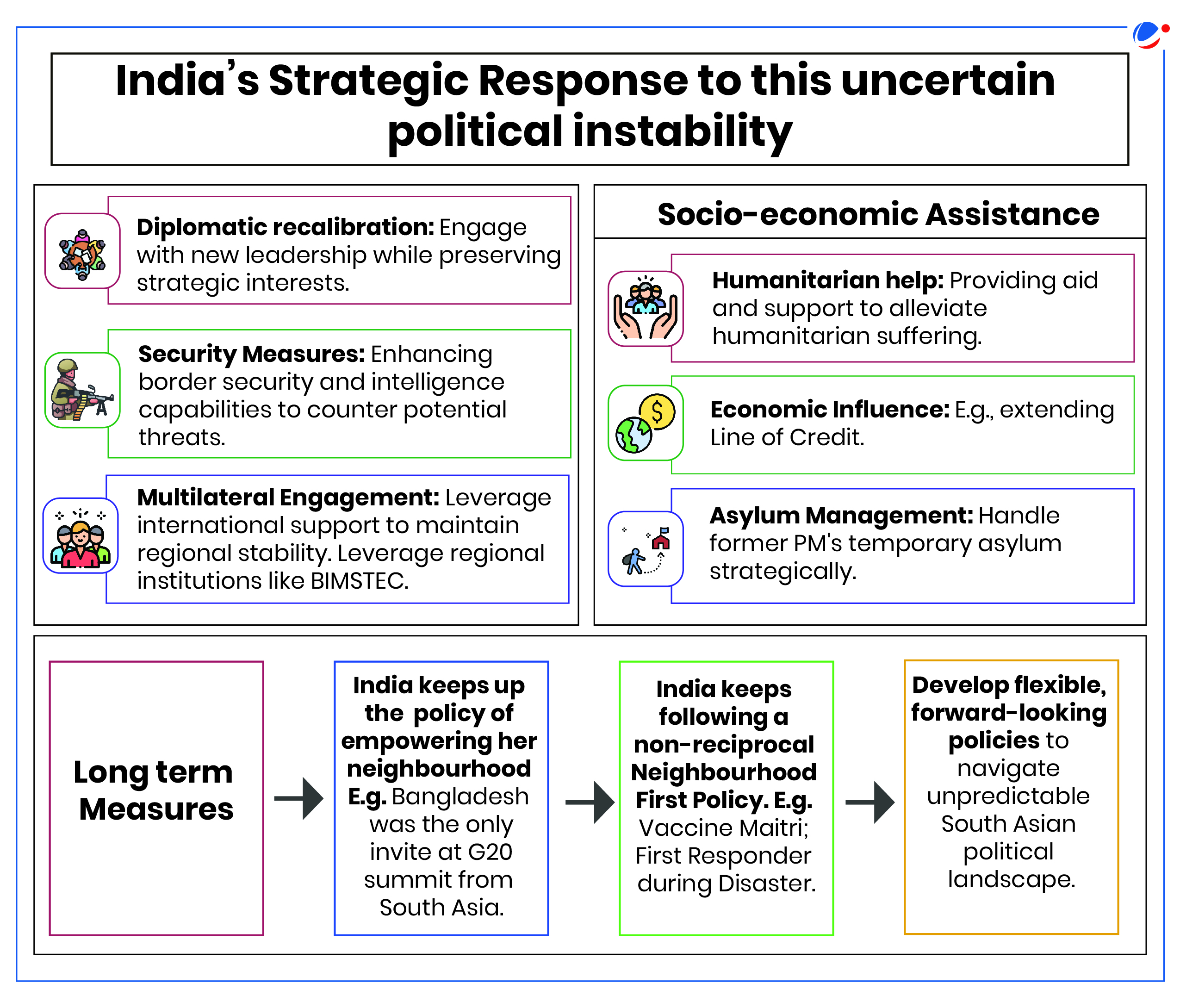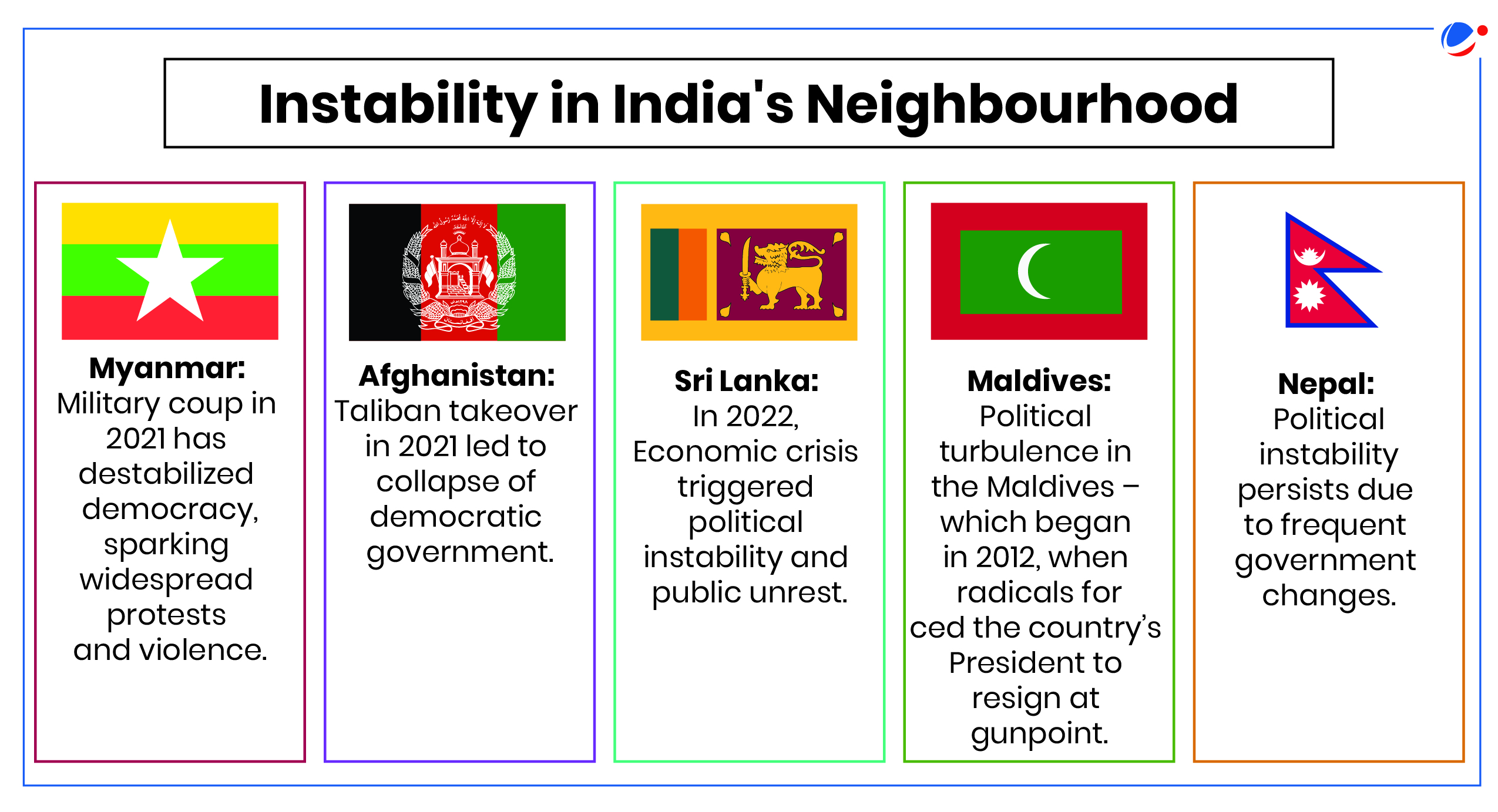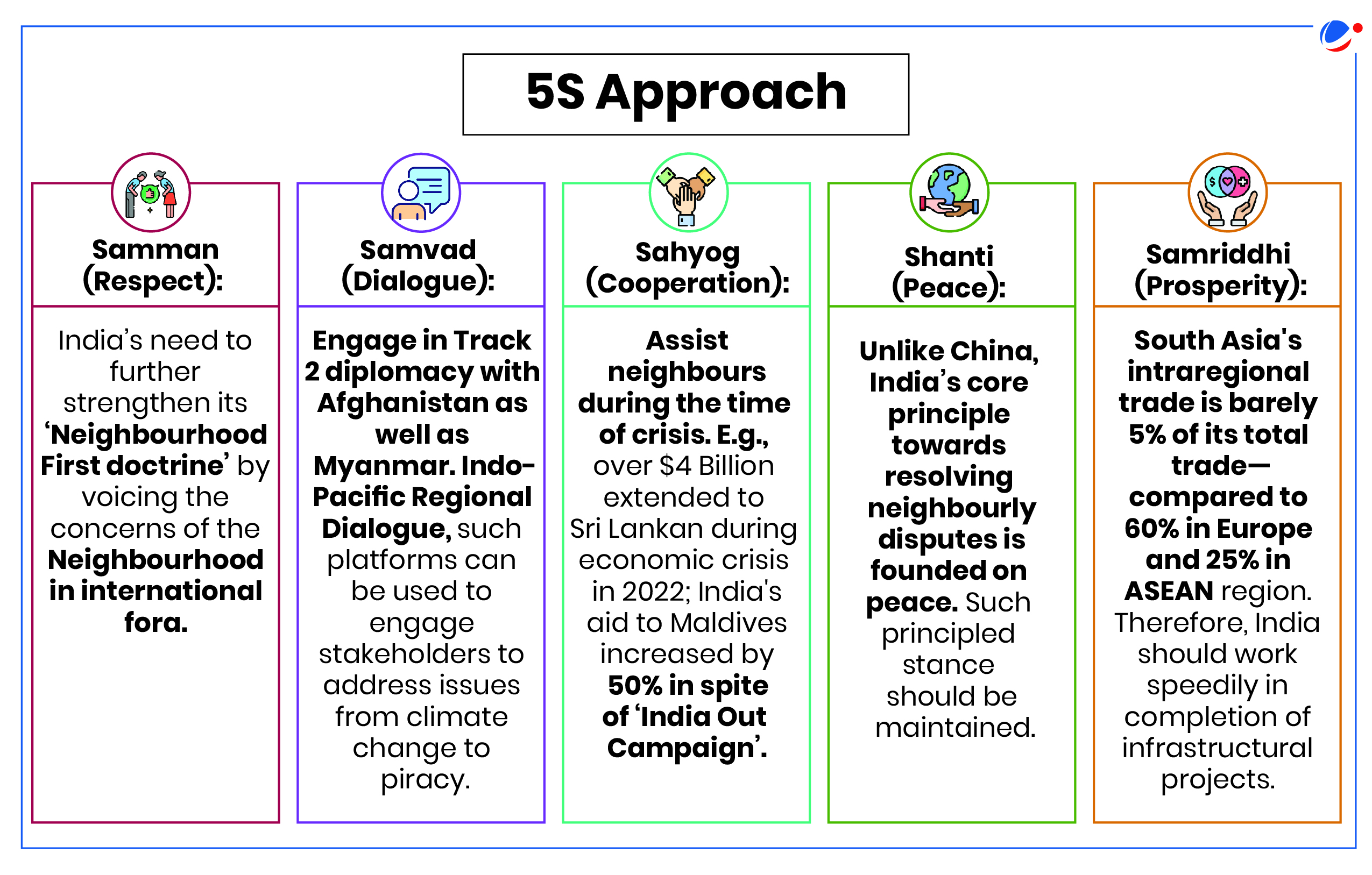Why in the News?
Bangladesh's Prime Minister has resigned amid mass protests.
More on the News
- An interim government has been sworn and it's led by Bangladesh's only Nobel Laureate and economist who is known for founding the Grameen Bank and pioneering the concepts of microcredit and microfinance.
- South Asia's recent political upheavals, including unrest in Bangladesh and instability in neighboring countries, have significant implications for India's strategic interests and regional stability.
Possible implications of recent development in Bangladesh
- Disruption in India-Bangladesh partnership: Erstwhile Bangladesh PM's ouster means that India has lost a trusted partner in the region.
- Previous govt was friendly to India, and both worked closely on countering terrorist groups operating out of Bangladesh.
- Increase in illegal migration and forced displacement: The rise of extremism in Bangladesh, threatening, minority population, could lead to their migration to India straining India's resources, particularly in border states.
- Incursion of foreign power in Bangladesh's internal politics which may create a security threat to India.
- Economic and investment threats: Since 2016, India has provided $8 billion in credit for the development of road, rail, shipping, and port infrastructure in Bangladesh.
- Threat to key projects that include the Akhaura-Agartala rail link and the Khulna-Mongla Port rail line.


Neighbourhood instability's impact on India
- Myanmar: Its instability is particularly concerning due to its shared border and the potential for increased insurgency and refugee flows.
- Already, more than 32,000 ethnic Chin have sought refuge in India's Mizoram state, and thousands more have fled to the state of Manipur, where their arrival has stoked violent ethnic conflict.
- Afghanistan: India's concerns range from the safety of its investments in Afghanistan to the security implications of a Taliban-ruled state.
- The situation poses a direct threat to India's national security, as extremist groups could gain a foothold in the region, potentially leading to cross-border terrorism.
- Sri Lanka: For India, the situation in Sri Lanka is significant due to the close geographical and cultural ties between the two nations.
- India confronts potential refugee influx, economic spillover effects, and strategic concerns over Chinese influence.
- Maldives: India's challenges include countering radicalization, maintaining influence against Chinese inroads, protecting Indian Ocean security, and balancing diplomatic ties amidst Maldives' volatile internal politics.
- Nepal: Frequent leadership turnover and growing Chinese influence complicates India's regional interests and relationships.
- Nepal recently swore in its 14th government in 16 years.
Way forward
- India, being a voice of reason and a votary of international law, has always advocated dialogue, consultation and fairness in her approach to global issues in general and regional issues in particular.
- In this regard India has adopted the 5S principled approach.





